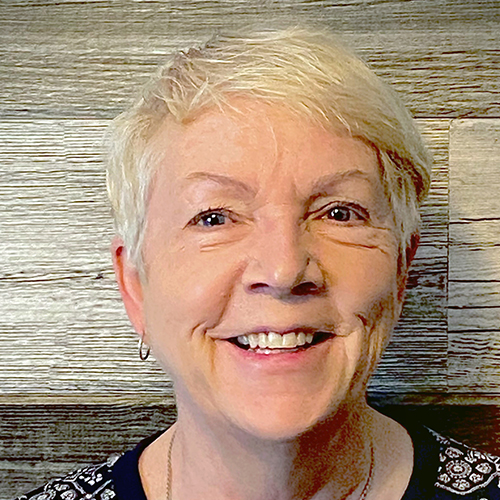 IBCLC Detailed Content Outline: Pathology / Infant Focused CERPs - Section III A
IBCLC Detailed Content Outline: Pathology / Infant Focused CERPs - Section III A
Access CERPs on Pathology / Infant for the IBCLC Detailed Content Outline recertification requirements. On-demand viewing of the latest Pathology / Infant focused IBCLC CERPs at your own pace.

Compensatory vs Novel Movements: 3 Keys for Babies With Tongue, Lip and Buccal Restrictions

Michelle has been a pediatric neurodevelopmental Occupational therapist specializing in precrawling infants for over 26 years. She has specialty certifications and training in lactation, manual therapy, and pre and peri natal psychology. Michelle has specialized in optimal cranial nerve function and oral restrictions, with an emphasis on infant movement, innate biological imperatives and human potential, providing novel curriculums, support and resources for both professionals and parents. She enjoys collaborating and working in teams for babies and families going through the tethered oral tissues release process.
Topic: Breastfeeding and Cranial Nerve Dysfunction – the what, who and why of Cranial Nerve Dysfunction in the newborn to precrawling baby - [View Abstract]
Topic: Compensatory vs Novel Movements: 3 Keys for Babies With Tongue, Lip and Buccal Restrictions - [View Abstract]
Topic: Interoception: Beyond the Homunculus....The Real Sixth Sense and Its Primary Function as Sensory Input to the Autonomic Nervous System - [View Abstract]
Topic: The Vagus Nerve: Branchial Motor / Special Visceral Efferents: The Pharynx, Larynx, Soft Palate and one tiny tongue muscle - [View Abstract]
Topic: TummyTime!™ : A Therapeutic Strategy for Parents and Babies - [View Abstract]
Babies with tongue, lip and buccal ties commonly present with altered or compensatory movements of the tongue, lips, face, mandible, neck and whole body. These compensations are secondary to restrictions and subsequent oral dysfunction that results from not having full range of motion and movement of the tongue, a vital organizational organ of the body. While these compensatory strategies have been somewhat functional prior to release, once the ties are released, babies need novel movements to emerge for function to improve and breastfeeding to experience a positive shift. The difficulty is that novel movements often do not spontaneously arise, requiring therapeutic intervention. In this talk, Michelle will discuss 3 keys to eliciting and strengthening novel and more competent oral patterns and feeding abilities after release while making compensatory strategies obsolete.

Complex Cases of Tongue-tied Babies: What Do We Tackle First?

Kathy Parkes is a sought-after speaker and webinar presenter as well as a published author. She has lived all over the world, settling in San Antonio, Texas after her Air Force husband retired. Kathy is a Registered Nurse with a Masters in Nursing Education and received her International Board Certified Lactation Consultant designation in 1992. Her private practice, Breastfeeding Perspectives, adds to her over 30 years of lactation experiences, which include WIC staff and clients, in-patient hospital work on L&D, postpartum, and NICU, taking a hospital to Baby-Friendly designation, setting up a lactation visitation program for both a home health agency and for the largest birth doula organization in San Antonio, and providing home and office lactation visits for private clients. She specializes in tethered oral tissues (tongue-and-lip ties), milk supply problems, multiples, and preterm/late preterm infants.
On the fun side, Kathy met her husband of 47 years as she was jumping out of the airplane he was flying. (You could say she fell for him!) She loves animals, traveling, and gardening. Most of all, she loves teaching others about breastfeeding.
Topic: How to Start a Private Lactation Practice - [View Abstract]
Topic: I QUIT!! Burnout, compassion fatigue, and self-care for the healthcare professional - [View Abstract]
Topic: Lactation Choices Following Pre-and-perinatal Loss - [View Abstract]
Topic: Powerful Relationships: How Babies (and Parents) Learn To Love - [View Abstract]
Conservative estimations report that the number of frenotomies globally has tripled in the past 10 years. Breastfeeding/chestfeeding parents seek help on the internet, social media, support groups, lactation consultants, physicians, midwives, and other healthcare professionals and are frequently sent straight to a release provider without the care of the other providers. However, a tongue or lip tie is not always the cause of the feeding problems the dyad is experiencing. This session will provide information on assessment, diagnostic tools, comorbidities, treatments, and complicated case studies to broaden your knowledge about ankyloglossia.
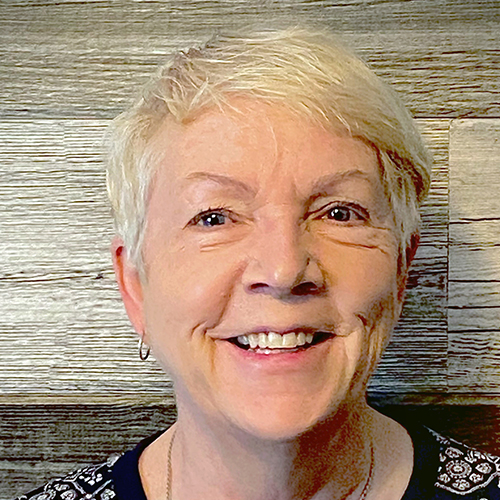

Debbie Fraser is an Associate Professor, Faculty of Health Disciplines, Athabasca University and a neonatal nurse practitioner in the NICU at St Boniface Hospital in Winnipeg Manitoba. She is the editor-in-chief of Neonatal Network and is the Executive Director of the Academy of Neonatal Nursing. Debbie has published three textbooks and over 70 book chapters and peer reviewed articles on topics related to high-risk newborns.
Topic: Late Preterm Infants: Not as Grown up as they look! - [View Abstract]
Topic: Not always a safe place: Intrauterine Infections - [View Abstract]
We think of the fetus as living in an impenetrable environment, protected from the outside elements. While most bacteria are too large to cross the placental barrier or infiltrate the amniotic membranes, some bacteria, viruses and parasites are capable of reaching the fetus and causing intrauterine infections. Over the years, the list of organisms responsible for these infections has grown with the addition of pathogens such HIV and West Nile Virus. Most recently, a resurgence of congenital syphilis has been identified in newborns born to women with an active infection in pregnancy. This session will review pathogens responsible for intrauterine infection with particular attention to congenital syphilis. A review of the effects of these infections will be accompanied by a discussion of the diagnosis, management and prognosis of intrauterine infections.


Carole Hervé is a private IBCLC (since 2011). She helps breastfeeding mothers at home or location of their choice, mostly in Paris and in the nearest neighborhood.
Prior to opening her private practice, she has been a La Leche Leader since 2008. Carole is passionate about information-gathering, education, articles writing, communications and training to provide lactation consulting and sensitive support to the families she works with.
She has been trained to support families with Sensory Food Aversion issues by Catherine Senez, a speech therapist in 2013 and is also BNCLC (Biological Nurturing Certified Lactation Consultant®).
She has been a speaker at the GOLD Lactation Online Conference in 2012, and in 2013 she translated 20 presentations from the GOLD Lactation Online Conference into French.
Carole has been strongly involved in the coordination of the International Breastfeeding Day (Journée Internationale de l’Allaitement), an event organized by La Leche League France. Carole is the mother of three children born in 2001, 2003 and 2006.
Children with Sensory Food Aversions consistently refuse to eat certain foods related to the taste, texture, temperature, smell and/or appearance. Feedings or mealtimes are therefore a displeasure for everyone.
Oral disorders are eating disorders caused by hypersensitivity.
Food aversions are common and believed to occur along a spectrum of severity, with some children reluctant to try new foods, and refusing whole food groups (vegetables, fruits, meats). Indeed, after an aversive experience, some children tend to generalize and refuse foods that look and/or smell like the aversive food (e.g., aversion to broccoli may be generalized to all green foods).
Reactions to the aversive foods can range from grimacing to gagging, throwing up, or spitting out the food. Some babies cannot even accept to be touched near their face, or mouth, they may not accept to be held in a wrap. Some children can't stand to have dirty hands, to walk in the sand, to be touched.
While this can be a challenge when a mother is trying to start solid food, this hypersensitivity may also even start with breastfeeding.
Babies need proper nutrition to grow and thrive, and difficulties with feeding in infancy can be a worrisome and become a dangerous condition. There are many different reasons why a baby may struggle with feeding. All merit evaluation and treatment. This conference aims at exploring solutions to support families who deal with oral aversion.

View Details / Enroll

View Details / Enroll
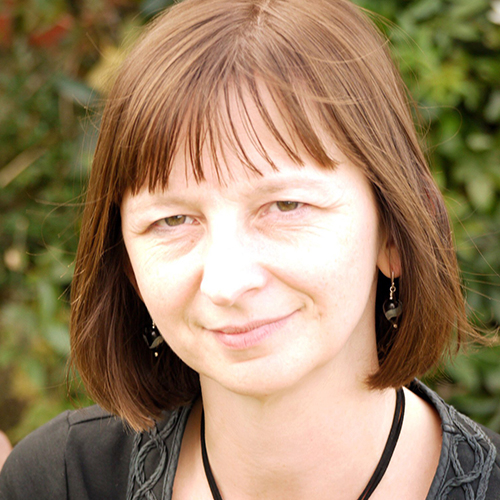
COVID-19 and Implications for Tongue-Tie Division in Infants

Sarah is a Registered General Nurse, Health Visitor, International Board Certified Lactation Consultant and Tongue-tie Practitioner with a busy private practice based in Cambridgeshire, UK. Sarah is a founder member and former Chair of The Association of Tongue-tie Practitioners and has written a book for parents and professionals, ‘Why Tongue-tie Matters’. Sarah lectures nationally and internationally on infant feeding and tongue-tie.
Topic: COVID-19 and Implications for Tongue-Tie Division in Infants - [View Abstract]
Topic: Is This a Tongue-Tie: How Do We Decide? - [View Abstract]
Topic: The Elephant In The Room - Bleeding Post Tongue-Tie Division - [View Abstract]
This presentation will examine the impact Covid 19 had on infant feeding and in particular the provision of tongue-tie services in the UK and other parts of the world during the period March to September 2020. It will look at the impact changes in provision had on the infant feeding experiences of families. It will also explore how practitioners managed services during the pandemic and what the lasting effects on those services have been. Specific concerns around transmission of Covid 19 during oral procedures will also be considered. Consideration to lessons learned will be given.


Dr. Gerner has been a Maternity and Pediatric Specialist in private practice for over 17 years with an additional focus on functional infant cranial work. She teaches other professionals to support breastfeeding across the USA and internationally. She is a wife, mother of 3 grown children, and lives in Northern CA with her husband and their 2 rescued dogs.
Topic: Introductions and Establishing the Value of Integration - [View Abstract]
Topic: Nitty Gritty Anatomy: The Cranium, Supporting Structure and the Muscle Layer - [View Abstract]
Topic: Tying It All Together- Consequences of Pathology and Ideal Collaboration - [View Abstract]
Biology often explains it all. Beyond the cranial and Musculo-skeletal system, the cerebral spinal/dural system and the cranial nerves play a huge roll not only in feeding function, but in the overall physical and cognitive health of the child. These systems are reciprocal- the structural system can cause neurological impairment; and likewise, neurological impairment can lead to structural imbalance and weak muscles. Many different therapeutic disciplines acknowledge this relationship in different ways. This presentation focuses on: (1) the cranial nerves specific to breastfeeding function; (2) The dura and CSF (cerebral spinal fluid) systems; (3) clinical presentations: Failure to thrive, colic, KISS/KIDD (4) Studies and articles from various approaches of care; and (5) the consequences of Cesarean Section on CSF and neuropathology.


Catherine Watson Genna BS, IBCLC is an International Board Certified Lactation Consultant in private practice in New York City. Certified in 1992, Catherine is particularly interested in helping moms and babies breastfeed when they have medical challenges and is an active clinical mentor. She speaks to healthcare professionals around the world on assisting breastfeeding babies with anatomical, genetic or neurological problems. Her presentations and her writing are enriched by her clinical photographs and videos. Catherine collaborates with Columbia University and Tel Aviv University Departments of Biomedical Engineering on research projects investigating the biomechanics of the lactating nipple and various aspects of sucking and swallowing in breastfeeding infants. She is the author of Selecting and Using Breastfeeding Tools: Improving Care and Outcomes (Praeclarus Press 2009) and Supporting Sucking Skills in Breastfeeding Infants (Jones and Bartlett Learning 2008, 2013, 2017) as well as professional journal articles and chapters in the Core Curriculum for Lactation Consultant Practice and Breastfeeding and Human Lactation. Catherine served as Associate Editor of the United States Lactation Consultant Association’s official journal Clinical Lactation for its first seven years.
Topic: Breastfeeding Strategies for Tongue-tied Infants - [View Abstract]
Topic: Critical Assessment of Apparent Tongue-Tie - [View Abstract]
Topic: Introduction to Cervical Auscultation - [View Abstract]
Topic: Lactation Support for Infant Biomedical Challenges - [View Abstract]
Topic: Organization of tongue movements before and after frenotomy for posterior tongue-tie: an Ultrasound analysis - [View Abstract]
Topic: Positioning and Latch for Breastfeeding - [View Abstract]
Topic: Ultrasound Analysis of Sucking: Tongue-Tie and Confounders - [View Abstract]
Topic: Using Breastfeeding Supplementers - [View Abstract]
Tongue tie is one potential cause of breastfeeding difficulties, but most authorities fear that frenotomy is overused. This presentation explores research on the role of the tongue during normal breastfeeding; briefly reviews validated assessment tools, and proposes other management, structural and medical issues that impact tongue mobility and feeding.
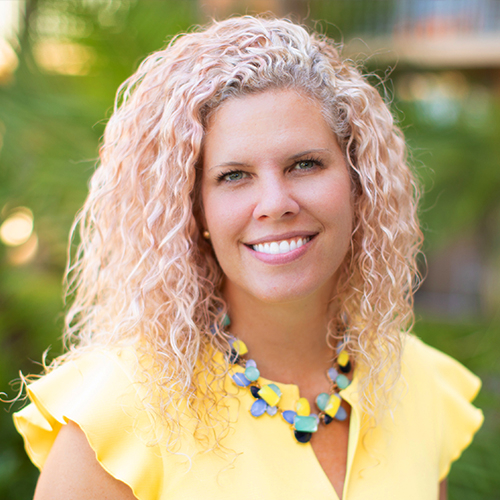
Current Trends in Identifying and Managing Neonatal Diabetes Mellitus

Tiffany Gwartney, DNP, APRN, NNP-BC, is an Assistant Professor at the University of South Florida (USF), College of Nursing. In addition to her neonatal clinical practice at Nemours Children’s Hospital in Orlando, Dr. Gwartney has been an Assistant Professor at USF since May 2015, where she has written and deployed experiential learning modules for the evidence-based practice course for undergraduates, integrated delegation simulations for undergraduate leadership students, and taught sim labs for the women, children & families course. Her most recent work was the implementation of a simulation regarding nursing interaction with a maternity couplet who was under airborne precautions, while in full personal protective equipment. This simulation was integrated into her COVID Care Education Module in which undergraduate students in their final practicum participated in a pilot program at designated clinical partner sites, providing bedside care for patients with COVID-19 disease. Her research interests include education, neonatal diabetes, role transition for novice Neonatal Nurse Practitioners (NNP), simulation, management of high-risk newborns in the delivery room, and couplet care for mothers with COVID-19. Dr. Gwartney has had several opportunities to speak internationally regarding the benefits of deliberate routine practice of high acuity, low-volume technical skills, and nationally regarding neonatal diabetes and conflict management. She is a member of Sigma Theta Tau (Iota Chapter) and is actively involved in several neonatal professional organizations: Florida Association of Neonatal Nurse Practitioners, Council of International Neonatal Nurses [education committee member], National Association of Neonatal Nurses [member], and The American Academy of Pediatrics [member, conference planning committee]. Dr. Gwartney enjoys traveling for pleasure but has also found herself working triage in a children’s clinic located in the remote village of Zapote, Guatemala, as well as educating NICU nurses in Paisley, Scotland and Shanghai, China.
Neonatal Diabetes Mellitus (NDM) is defined as persistent hyperglycemia (>200 mg/dL) that requires insulin treatment and occurs before six months of age (Habeb et al., 2020). While the incidence of neonatal diabetes is merely 1 in 90,000 to 160,000 live births, the rarity of this disease can make diagnosis challenging and potentially result in delayed treatment (Letourneau et al., 2017). Uniquely set apart from type I diabetes by its strictly genetic etiology, NDM can be associated with developmental delay and epilepsy (DEND). Insulin is a growth factor that is critical for optimal growth. Insulin dependence can be permanent or transient. Management of NDM includes insulin followed by stabilization using oral sulfonylureas (Hattersley et al., 2018). Positive outcomes are contingent upon early diagnosis, euglycemia, early interventions including multidisciplinary involvement, rehab services and parental support with regard to hypo/hyperglycemia management and insulin administration. The purpose of this presentation shall be to describe the etiology, pathophysiology and clinical presentation of NDM, discuss clinical management strategies, and recognize the importance of a multi-faceted, inter-disciplinary approach to caring for an infant with NDM.
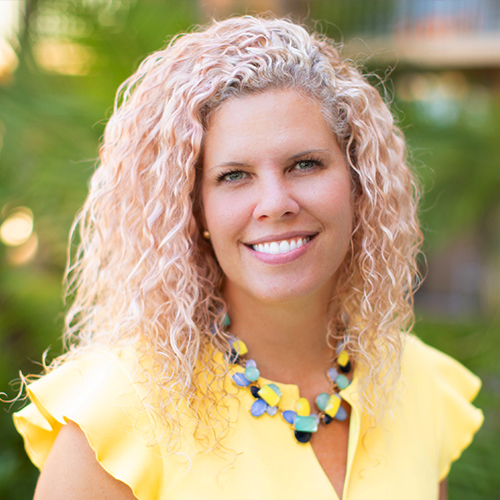
View Details / Enroll


Christine Bishop is a neonatologist, bioethicist, medical educator, and Assistant Professor of Pediatrics at Wake Forest University School of Medicine and Brenner Children’s Hospital in Winston-Salem, NC. She founded and directs the Brenner Children’s Hospital Care Always ™ Neonatal/Perinatal Palliative Care Program that provides holistic care for infants with life-limiting and complex medical conditions. Dr. Bishop received her MD from The Ohio State University School of Medicine and Public Health and completed her pediatric residency and neonatology fellowship at the University of Texas Health Sciences Center San Antonio. She completed a Master of Arts in bioethics at the Wake Forest University Center for Bioethics, served as the lead clinical ethics consultant for Wake Forest Baptist Medical Center, chairs the Clinical Ethics Consultation Committee, and co-directs the undergraduate medical humanities course at Wake Forest University School of Medicine.
Palliative care is a dynamic, multidisciplinary field of medicine that focuses on holistic care for patients with complex, serious, and life-limiting conditions. Neonatal/perinatal palliative care involves care for women pregnant with fetuses who have potentially life-limiting conditions, a holistic approach to family care and decision making, and care for infants with life-limiting or complex medical conditions. This session will discuss key aspects of neonatal/perinatal palliative care. We learn so much from our patients and families, and their stories will provide the framework as we work through important concepts in neonatal/ perinatal palliative care. Topics to be discussed include communication, shared decision making, managing uncertainty, pharmacologic and non-pharmacologic approaches to care, the role of hospice, and ethical issues involved in care of neonates at the end of life.

View Details / Enroll
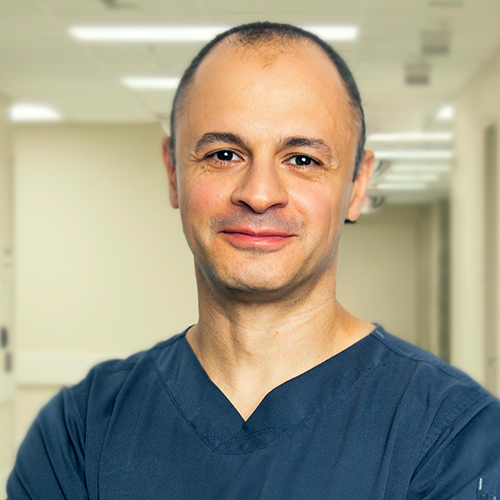
Early Breastmilk Exposure and Later Cardiovascular Health in Premature Infants

Prof EL-Khuffash is a Consultant Neonatologist and Paediatrician. He is a qualified International Board Certified Lactation Consultant. His two primary clinical and research areas of expertise are heart function in neonates and the promotion of breast feeding, and breast feeding support, to new mothers. He also has extensive expertise in general feeding issues encountered by babies over the first few months.
Prof EL-Khuffash sees families for prenatal breast feeding and fetal anomaly consultations and postnatal infant assessment, 2 and 6 week checks, and breastfeeding/general support including early irritability and reflux in his consultation rooms in the Rotunda Private Clinic.
Prof EL-Khuffash has considerable knowledge of breast feeding medicine and experience in providing antenatal and postnatal breast feeding advice and support to new mothers. This includes identifying and addressing challenges to breastfeeding in both the mother and the baby. He also specialises in general feeding difficulties and early feeding issues encountered by babies.
Prof EL-Khuffash graduated from Trinity College, Dublin in 2002 and enrolled in the Royal College of Physicians of Ireland paediatric specialist training scheme in 2005. He completed a Doctor of Medicine (MD) degree in University College, Dublin in 2008 and his neonatal specialty training in Toronto, Canada (2009-2011). Following this, he was appointed as a consultant Neonatologist and Assistant Professor of Paediatrics at the University of Toronto in January of 2011. He obtained a diploma in clinical epidemiology during his time in Toronto. He is the recipient of several national and international research awards, with international peer reviewed publications and keynote presentations and the lead for cardiovascular research, supervising several post graduate PhD candidates.
Topic: Mother's Own Milk Versus Donor Human Milk in the NICU: Practical Recommendations for Individualized Care - [View Abstract]
Premature infants have impaired cardiovascular function that persists into adulthood. Preterm infants exhibit impaired systolic and diastolic dysfunction that is intolerant of the adverse loading conditions experienced during the early neonatal period. Young adults born premature demonstrate a unique cardiac phenotype characterized by reduced biventricular volume, relatively lower systolic and diastolic function, and a disproportionate increase in muscle mass. This may clinically manifest by an increased risk of cardiovascular incidents, hypertension, and reduced exercise tolerance. Those consequences appear to result from early postnatal cardiac remodelling due to premature birth and associated comorbidities. Recent evidence suggests that early exposure to breast milk slows down or even arrests those pathophysiological changes, thereby mitigating the long-term adverse effects of premature birth on cardiovascular health. In this presentation, I aim to demonstrate the vital role of early breast milk exposure in preventing cardiovascular disease in preterm infants. We will explore the emerging evidence and examine the possible mechanistic pathways mediating this phenomenon.
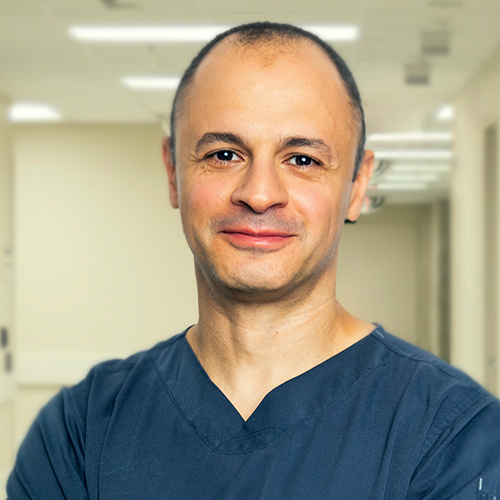
View Details / Enroll




